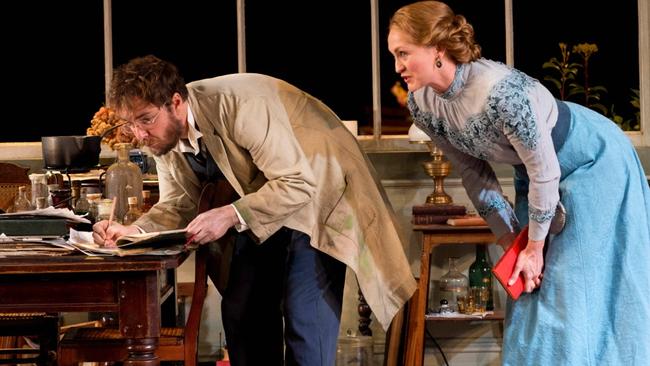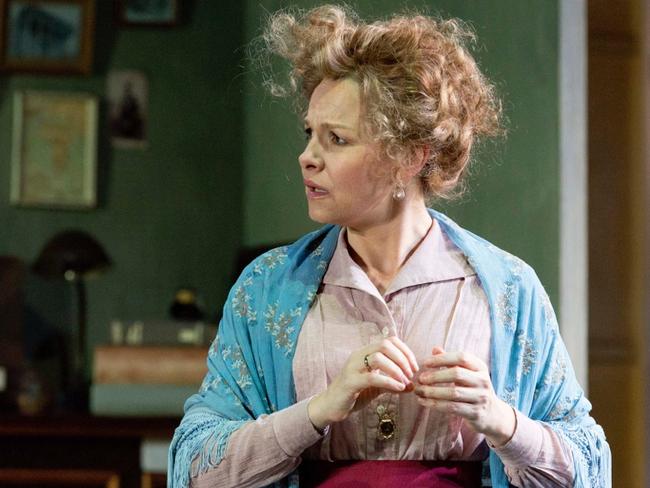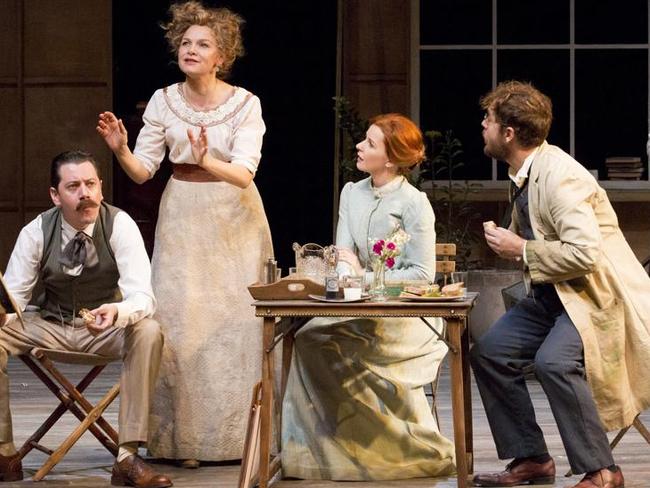Sydney Theatre Company’s Andrew Upton sheds fresh light on Gorky’s Children of the Sun
Andrew Upton’s Children of the Sun sheds light on Gorky’s drama about the human condition during a period of social upheaval which resonates with audiences today.

Inner West
Don't miss out on the headlines from Inner West. Followed categories will be added to My News.
ONLY four years separated the premiere of Chekhov’s play The Three Sisters (1901) and Gorky’s Children of the Sun (1905), so it is not surprising that the two works deal with similar concerns.
The setting for both is a family country estate where the dissatisfied occupants try to wrest meaning and purpose from the restricted circumstances of their rural lives.

Most audiences are familiar with the existential frustrations of Chekhov’s three sisters, since that play makes a regular appearance on Australian stages.
Gorky’s play gives adaptor Andrew Upton an opportunity to present an unfamiliar work to Australian audiences and put a contemporary Aussie spin on the language of the play with a view to making it more accessible and relevant to contemporary theatre-goers.
One could ask, do Australian audiences really need to hear Aussie swearwords to relate to the themes of the play?
Gorky wrote this work in jail, and while he might have wanted to criticise the landed gentry for their blindness to the wider milieu around them, he nonetheless creates, as did Chekhov, a cast of sympathetic but misguided and self-absorbed characters.
In this production, Upton has reduced the number of characters to focus on the core family members and their retainers.

The man of the household is Protasov (Toby Truslove), an amateur scientist whose faith in the potential of his discipline to solve human problems is undermined by rumours that his sulphurous chemistry experiments are poisoning the local peasantry.
Clearly, Gorky has no faith in these experiments either, since they are literally “on the nose” to the long-suffering members of the household.
Yelena, Protasov’s wife (Justine Clarke), is exasperated by her husband’s insensitivity and turns to the ingratiating artist Vageen (Hamish Michael) for companionship. Protasov’s sister Liza, played with neurasthenic ennui by Jacqueline McKenzie, predicts a dire future for her family and, by extension, her class, but her warnings are ignored by all, including her doting lover, the vet Boris (Chris Ryan). The wealthy widow Melaniya, a role executed with sexual fervour by Helen Thomson, has designs on Protasov, who is blind to her overt advances.
If these characters are not alive to the dramatic changes in the world around them what hope is there for the devoted nanny (played by Valerie Bader), the wife-beating handyman Yegor (Yure Covich) or his oppressed wife Avdotya (Julia Ohannessian).
It is only the young maid Feema (Contessa Treffone) who makes a break for a new life away from the stagnating existence of the rural intelligentsia.
When these characters are trapped inside their house in the final act by the rioting peasants, you know that the time is up for this family and all in their class. They will no longer be able to live in the bubble of their own self-delusion.
Director Kip Williams’ technique of overlapping dialogue may have been an attempt to make the speech more naturalistic and give it a sense of urgency, but it was quite disconcerting to listen to and resulted in the loss of a considerable amount of conversation.
Additionally, the frequently raised volume of the exchanges between the characters resulted in a constantly intensified emotional expression which was not always justified.
Upton’s adaptation employed Aussie slang as the vernacular of the play, but this came at the expense of linguistic subtleties that reflect class and social differences in more straightforward adaptations of the play (for example, the nanny would never address her employer by his first name alone).
David Fleischer’s brilliant revolving stage design conveyed, through a judicious use of several small sets scattered around the space, the impression of a large country house with lots of nooks and crannies for its occupants to take refuge it.
The Russians have a way of combining the comic and the tragic on stage that can provoke audiences to cry as they laugh, or vice versa. This play is no exception.
Despite my reservations, the cast performances were excellent and the production gave us an insight into Gorky’s theatrical and political pre-occupations of the time.
And any play that addresses human concerns, no matter the context, period or place, will always speak to audiences willing to open their minds to hear and understand.
Sydney Theatre Company
Drama Theatre Opera House
Tickets $50-$99
Until October 25.


